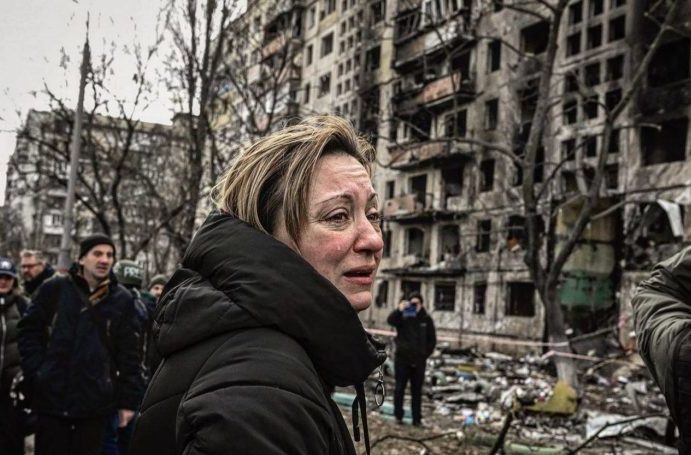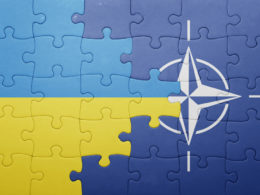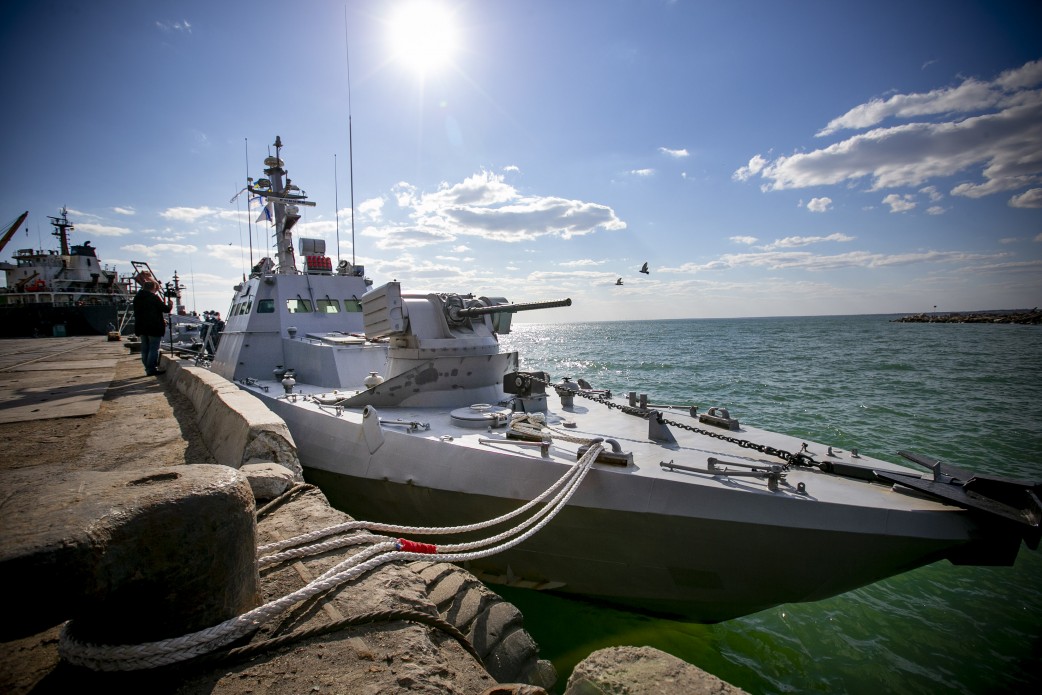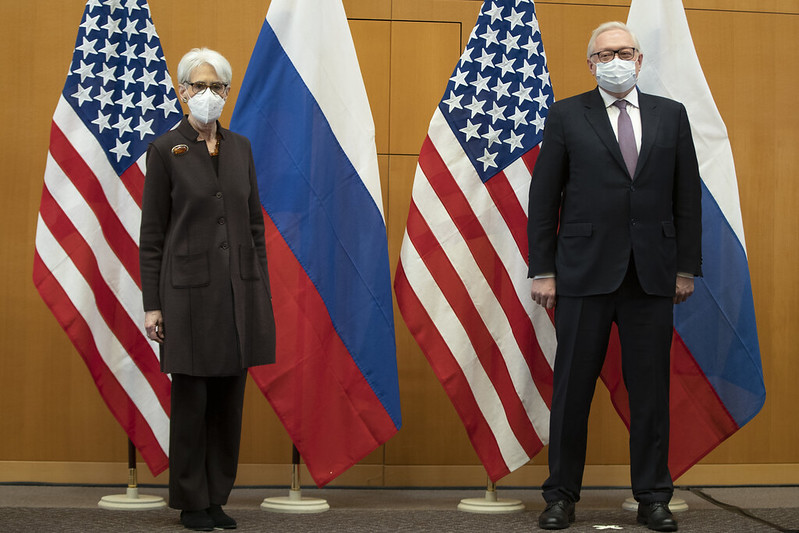Meanwhile, NATO’s own strategic concept envisions that the Alliance will stop ongoing conflicts where they affect Alliance security, argues military expert Hans Petter Midttun; this makes any further stalling on action simply indefensible.
Western leaders try desperately to hasten an end to the war through diplomacy, economic pressure, and weapon shipments to Ukraine. While we are still waiting for the full effect of the former, defensive aid has helped slow down the Russian advance and demoralize the soldiers.
While the advance has slowed down, it has not stopped completely. The Ukrainian Armed Forces are also taking losses and are being pushed back in some areas. We might see a renewed momentum in the Russian offensive if:
- the Russian Armed Forces succeed in encircling or evicting the Ukrainian forces in Donbas;
- Mariupol falls
- the Armed Forces of Belarus enters the fight and
- the Russian Air Force gains air supremacy over Ukraine
That said, this will not solve what appears its inherent structural problems. Its ability to plan and conduct complex air operations will not improve anytime soon. Neither will their ability to operate jointly. The defense industry analyst and consultant specializing in Land Warfare and ex-British Army officer, Nicholas Drummond, wrote:
“Russia’s disastrous tactics have been a terrible advertisement for tanks. But we should be careful to avoid drawing the wrong conclusions. No artillery support. No infantry support. No air support. This is not how combined arms tactics work in an era of multi-domain operations.”
The Russian situational awareness will remain limited compared to that of the Ukrainian side considering its support from its partners. The technical status of the Russian equipment will not turn to the better – quite the opposite. Logistics will remain a problem. Even more so as the logistic lines increases. Most importantly, the morale and motivation of its soldiers will remain low, while both Ukrainian civil and armed resistance will grow in scope and ferocity.
A looming stalemate
A stalemate and a long and horrific war of attrition might very well be the most likely scenario.
U.N. Secretary-General on Tuesday urged an end to the “absurd war,“ warning that the conflict is “going nowhere, fast” and that the Ukrainian people are “enduring a living hell. […] Continuing the war in Ukraine is morally unacceptable, politically indefensible and militarily nonsensical”, he said.
Russia does not want a stalemate for the obvious reason that it cannot endure the long-term costs of a protracted war. Desperate times call for desperate measures, lending credibility to US President Joe Biden’s claim that it’s “clear” Russia is considering the use of chemical and biological weapons in Ukraine.
The potential horror of it is unspeakable but in principle not different from the horrific atrocities Russia is already conducting in Mariupol, Chernihiv, Kharkiv, Kyiv, and many other cities and villages in Ukraine. While the destruction of cities by missiles, bombs, and artillery takes longer than time, the outcome is still the same.
Biden reiterated the use of chemical and biological weapons would prompt a “severe” but so far undefined response from the West.
As the fourth week of the full-scale war is drawing to an end (and more than 8 years after the war started) it is hard to fathom why NATO has not yet been able to declare its “red lines.”
The answer might very well be connected to the EU’s fifth round of sanctions. The European Union’s foreign ministers disagreed on Monday on whether and how to slap sanctions on Russia’s lucrative energy sector over its invasion of Ukraine.
Diplomats caution that energy was one of the most complex sectors to sanction because each EU country has its own red lines, Reuters reports. While
“the Baltics want an oil embargo, Germany and Italy, which depend on Russian gas, are pushing back because of already high energy prices. Sanctions on coal are a red line for some, including Germany, Poland and Denmark, while for others, such as the Netherlands, oil is untouchable. Moscow itself has warned that such sanctions could prompt it to close a gas pipeline to Europe – another potential deterrent.”
Russia’s siege and bombardment of Mariupol and other Ukrainian cities are undeniably increasing pressure for action. Russian use of chemical or biological weapons in Ukraine might be the act beyond the still undeclared NATO “red line,” triggering a military intervention. Maybe.
- despite the conflict already being a wider conflict;
- despite us are already being exposed to Russian aggression;
- and despite the inherent deterrence of the Alliance.
One day before the extraordinary NATO summit, it is important to remind all NATO members that:
“NATO’s fundamental and enduring purpose is to safeguard the freedom and security of all its members by political and military means. Today, the Alliance remains an essential source of stability in an unpredictable world. NATO member states form a unique community of values, committed to the principles of individual liberty, democracy, human rights and the rule of law. The Alliance is firmly committed to the purposes and principles of the Charter of the United Nations, and to the Washington Treaty, which affirms the primary responsibility of the Security Council for the maintenance of international peace and security.
NATO will actively employ an appropriate mix of those political and military tools to help manage developing crises that have the potential to affect Alliance security, before they escalate into conflicts; to stop ongoing conflicts where they affect Alliance security; and to help consolidate stability in post-conflict situations where that contributes to Euro-Atlantic security.”
Safeguarding freedom and security, defending democracy and the principles of individual liberty, democracy, human rights, and the rule of law come at a cost.
Trying to avoid the costs undermines NATO’s credibility and our collective security.
Related:
- A secret plan to deploy NATO peacekeepers to Ukraine is brewing in Poland
- NATO, you are already part of the conflict. Enforce a no-fly zone in Ukraine, now
- “Hey Putin, NATO’s already here!” Foreign fighters arrive to battle Russian invaders in Ukraine
- More Ukrainians support military alliance with UK, Poland than NATO accession, poll shows
- Concessions to Russian demands at “peace talks” will only bring further aggression








